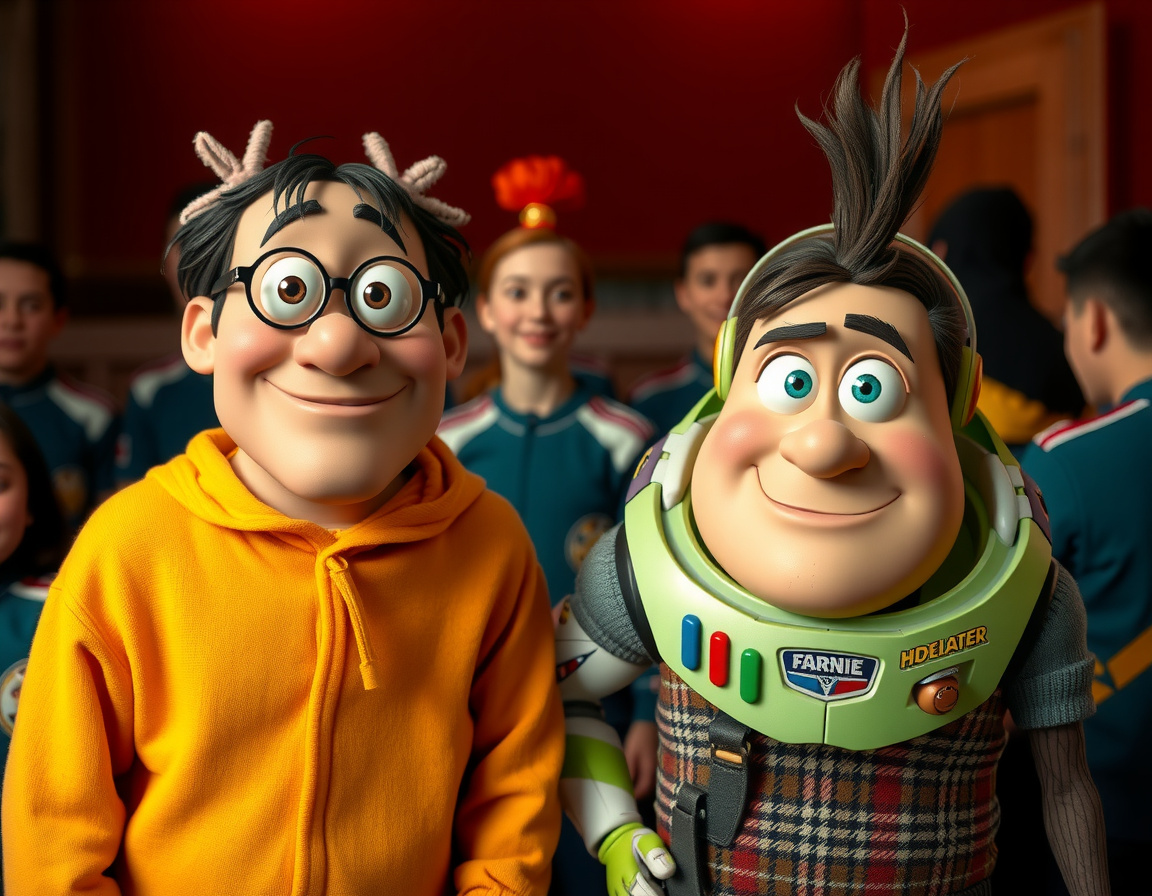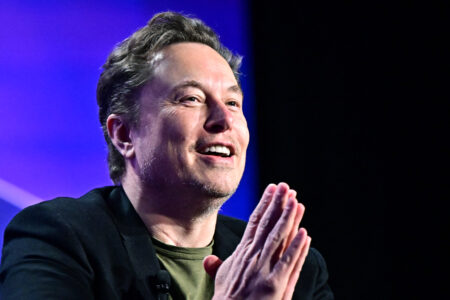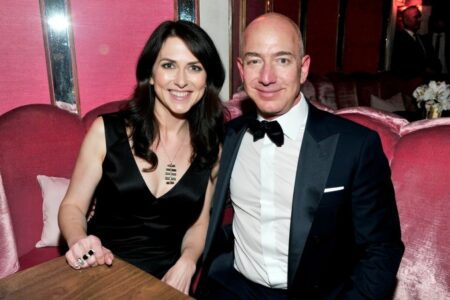
Many want to become billionaires.
After all, there are only 2,781 people on Forbes’ World’s Billionaires list. Who’s to say you can’t join the ranks?
With Bill Gates, Mark Zuckerberg, Elon Musk, and Jeff Bezos being household names, this dream doesn’t come as a surprise. These individuals inspired a new age of young entrepreneurs, many of whom have taken up degrees in finance, business, and marketing in hopes of following in their footsteps and adopting what they call the “billionaire mindset.”
Unfortunately, it’s not as straightforward as it seems. Having a money-making mindset is one thing, but the path to billionaire status has never been clean-cut. While some attribute their success to innovation and hard work, others face scrutiny over inherited wealth and systemic advantages.
So are all billionaires truly self-made, or were they handed their fortunes and fame instead of building their empires from nothing? Let’s discuss.
Breaking down the billionaire discourse
Some billionaires were fortunate enough to be born into wealth and opportunity.
Combined with the right networks, an audacious personality, and nepotism to back them, these billionaires had the means to crack the code – the unlimited money hack, if you will.
The result? The notion is that billionaires exploit and utilise corporatocracy – think of it as a democracy with economic, political, and even judicial control, but for corporations – for their own gain at everyone else’s expense. Take Bezos and Musk, for example – both have received scathing criticism for their personalities, business decisions and treatment of their employees.
“Amazon CEO and richest-man-in-the-world Jeff Bezos wants you to work as much as he does – for one-millionth of the pay,” reads an article from In These Times, an independent, nonprofit magazine dedicated to advancing democracy and economic justice.
Still, we’ve had our fair share of inspiring, self-made billionaire stories over the past decades.
Jan Koum, creator of the messaging platform Whatsapp, struggled to make ends meet after leaving Ukraine, relying on food stamps and used books to get by. Oprah Winfrey, who suffered from an abusive childhood, went from working at a local radio station as a teenager to becoming one of the most successful television personalities of all time.
Stanford psychologist Carol Dweck calls it a growth mindset, but many call it the billionaire mindset.
“They embrace the possibility of failure and reframe it as a necessary foundation for success,” reads Dweck’s research. “They have systems in place to learn and improve in the future and refuse to waste time proving over and over how great they are.”
The idea that billionaires aren’t the best people can be true, but it’s also okay to recognise their hard work when applicable. Perhaps that, too, is part of the coveted billionaire mindset.
 Sometimes life is all about risks, like going onto Shark Tank and pitching a sponge called “Scrub Daddy” to a table of rich people like Lori Greiner and Mark Cuban.
Sometimes life is all about risks, like going onto Shark Tank and pitching a sponge called “Scrub Daddy” to a table of rich people like Lori Greiner and Mark Cuban.
The billionaire mindset, according to many
An innovative spirit
Most billionaires earned their status by bringing fresh ideas to the table and turning them into enterprises worth millions. Gates invented a useful product, while Melanie Perkins, Canva cofounder, innovated a new online design platform. Mukesh Ambani, who made headlines this year for his son’s US$600 million wedding ceremony, transformed his father’s textile business into an empire worth US$120 billion.
Of course, an innovative spirit must also come with the ability to take calculated risks.
Being innovative is all about swimming against the current, going above and beyond the mainstream – but also remaining smart about it. Not all billionaires make rash, impulsive decisions, like signing a US$44 billion deal for a social media platform and practically running it into the ground.
Resilience
Resilience is the thing that sets apart thriving individuals from those who fold under pressure. As cheesy as it sounds, rather than viewing mistakes as failures, the most resilient people turn them into life lessons.
The best business owners aren’t quick to blame the economy, their team, or sheer bad luck when things go south. Having a billionaire mindset starts by being focused on solutions rather than excuses – and even if you don’t end up raking in millions, it’s still a valuable trait to have for success.
Be open to learning
The moment you think you have nothing else to learn, you kill your potential to become a billionaire.
After all, life doesn’t stop once you earn your first billion. Having the right billionaire mindset means always being curious about the world around you, finding potential for change – and profit – where others see only what has already been done.
When all’s said and done, these qualities will help any eager entrepreneur scale their business or personal brand. But you probably already had an inkling – after all, many others echo similar sentiments on platforms like LinkedIn, along with other tips like good time-management skills, effective communication skills, and more.
It’s time to explore other mediums to glimpse what goes on in a billionaire’s mind. Perhaps some of their recommended books could provide insight as they inspire these leaders’ mindsets, strategies, and approaches to success.
Get into the billionaire mindset with six books recommended by these money moguls:
 How did the richest people in the world cultivate their billionaire mindset?
How did the richest people in the world cultivate their billionaire mindset?
Books recommended by Bill Gates and other billionaires
“The Coming Wave” by Mustafa Suleyman
Gates is an avid reader with a massive archive of books he recommends on GatesNotes, his blog. This holiday season, the Microsoft founder picked out four books he enjoyed this year, with one particular standout – “The Coming Wave” by Mustafa Suleyman.
“Mustafa has a deep understanding of scientific history, and he offers the best explanation I’ve seen yet of how artificial intelligence — along with other scientific advances, like gene editing — is poised to reshape every aspect of society,” says Gates in his blog post on December 2024, aptly titled “Deck the Shelves.”
“He lays out the risks we need to prepare for and the challenges we need to overcome so we can reap the benefits of these technologies without the dangers. If you want to understand the rise of AI, this is the best book to read.”
“Zero to One: Notes on Startups, or How to Build the Future” by Peter Thiel with Blake Masters
Andrew Ng’s journey started with an undergraduate degree at Carnegie Mellon University, with a triple major in computer science, statistics, and economics; he then went on to pursue a master’s degree in electrical engineering and computer science at the Massachusetts Institute of Technology (MIT), before completing his PhD in computer science at the University of California, Berkeley.
The Google Brain founder’s Goodreads list is a treasure trove in its own right, but the top choice “Zero to One: Notes on Startups, or How to Build the Future” is his favourite for multiple reasons. He cites the book as one he’d “recommend to someone wanting to do something innovative, to create something new.”
“It’s a very good book that gives an overview of entrepreneurship and innovation,” he says in a HuffPost entry. Written by legendary entrepreneur and investor Peter Thiel, the book teaches readers to ask questions that lead them to find value in unexpected places.
Even Zuckerberg recommends it – his comment is plastered over the book’s page on Amazon. “This book delivers completely new and refreshing ideas on how to create value in the world,” it reads.
 When people say the term “came from nothing,” Oprah Winfrey is often one example. Her book list is a great start to creating a billionaire mindset from nothing.
When people say the term “came from nothing,” Oprah Winfrey is often one example. Her book list is a great start to creating a billionaire mindset from nothing.
“Small Things Like These” by Claire Keegan
Billionaires don’t just read non-fiction. The latest lineup from Winfrey’s book club selection was made into a film adaptation in 2024, starring award-winning actor Cillian Murphy.
The story, set in Ireland in December 1985, follows Bill Furlong, a father and local merchant, as he uncovers the truth about a Magdalene laundry — a convent where women and girls were forced into labour under harsh conditions. Winfrey related to the book due to her harsh childhood; she was sexually abused by male relatives and her mother’s friends for years, before managing to score a scholarship to study communication at Tennessee State University.
Winfrey resonated with a particular line from the book: “Was there any point in being alive without helping one another?” she says during an appearance on CBS Mornings. “What’s so surprising is that not only is it the small things – it’s about when you’re able to do other things for other people, that really makes a difference. That is the essence.”
That’s one key aspect of the billionaire mindset – being able to help and give back to those less fortunate.
Gates and his wife Melinda, George Soros, and Michael Bloomberg all own large foundations and donate part of their wealth to charitable causes, making significant impacts in areas such as health, education, and the environment.
Warren Buffett is reportedly giving away 99.5% of his remaining wealth, now valued at more than US$150 billion by Forbes magazine, to a charitable trust overseen by his daughter and two sons when he dies.
“The Intelligent Investor” by Benjamin Graham
If you aim to grow your worth through investing, this book is a must-read. It explores Benjamin Graham’s timeless philosophy of “value investing,” helping to navigate common investing mistakes and teaching to develop sensible strategies.
Written by the father of financial analysis and value investing, this book was first published in 1949 – today, it’s still the best book about investing, according to Buffett. High praise, considering that Buffett is considered to be the greatest investor of all time, having been under Graham’s tutelage himself during his time at Columbia Business School, where he pursued a master’s in economics.
“I read the first edition of this book early in 1950, when I was 19. I thought then that it was by far the best book about investing ever written. I still think it is,” said Buffet in the preface of the revised edition.
 Going goofy is one way to getting a billionaire mindset. These characters are in a Pixar film that’s now the highest-grossing animated film of all time and the fastest to gross US$1 billion.
Going goofy is one way to getting a billionaire mindset. These characters are in a Pixar film that’s now the highest-grossing animated film of all time and the fastest to gross US$1 billion.
“Creativity, Inc.” by Ed Catmull
No billionaire has made it to where they are without a little creativity in their endeavours. This story of Pixar, written by one of the computer-animation giant’s founders, is proof of that. The book goes beyond to reveal the ideals and techniques that have made Pixar so widely admired – and so profitable.
“I love reading first-hand accounts about how people build great companies like Pixar and nurture innovation and creativity,” Zuckerberg said. The Meta founder appreciated how the book offered insight into the meetings, postmortems, and “Braintrust” sessions where some of the most successful films in history are made.
More importantly, it explores the culture of Pixar during its early days – a unique environment that Catmull and his colleagues built at Pixar based on leadership and management philosophies that protect the creative process and defy convention. Ultimately, it’s a great read for creative, inquisitive minds.
 Wall Street — the epicentre of the trading realm and home to some of the biggest financial institutions in the world, such as the Federal Reserve, major banks, and the New York Stock Exchange.
Wall Street — the epicentre of the trading realm and home to some of the biggest financial institutions in the world, such as the Federal Reserve, major banks, and the New York Stock Exchange.
“Conspiracy of Fools” by Kurt Eichenwald
Written by award-winning New York Times reporter Kurt Eichenwald, “Conspiracy of Fools” explores the Enron scandal that changed Washington and Wall Street forever — with lies, crimes, and ineptitude.
“The evil in this book is so extreme. You see how ordinary people get sucked in by the evil environment around them. You learn so much,” said the late Charlie Munger, vice chairman of conglomerate Berkshire Hathaway.
Munger had previously pursued math at the University of Michigan, but dropped out to serve in the US Army Air Corps during World War II. He then used the GI Bill to attend Harvard Law School.
The book takes you to the world’s highest offices: the Oval Office, the Justice Department, and corner executive suites — and around the world to Washington, Bombay, London, Munich, Sao Paolo, and more.
As its summary describes it, the book is an insight into the “secretive worlds of corporate power.” The billionaire mindset includes having a map of it.










